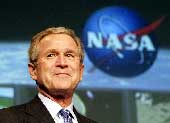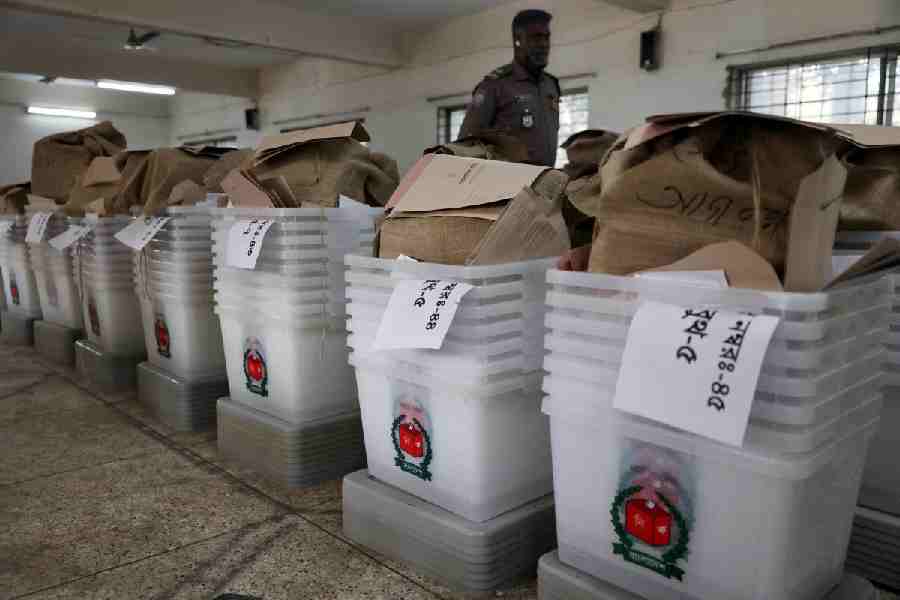 |
| George W. Bush at the Nasa headquarters in Washington. (Reuters) |
Washington, Jan. 15 (Reuters): US President George W. Bush announced plans yesterday to send humans back to the Moon as early as 2015 and eventually to Mars — an election-year initiative that critics derided as a costly extravagance that could renew a military space race.
“We will build new ships to carry man forward into the universe, to gain a new foothold on the moon and prepare for new journeys to the worlds beyond our own,” Bush said at the National Aeronautics and Space Administration.
The announcement came less than a year after the breakup of the space shuttle Columbia, which killed all seven astronauts last February. Bush said the remaining space shuttles would be retired in 2010. The new initiative would be “a journey, not a race,” said Bush, calling on other nations to join the US effort. It could also help extend US military supremacy in space at a time when China is planning lunar exploration missions.
“You always want the (strategic) high ground,” Republican Senator Sam Brownback of Kansas, chairman of the Senate commerce subcommittee on science, technology and space, said. Such thinking echoed a key aim of the 1960s US space race against the Soviet Union.
Alice Slater, head of the environmental advocacy group Global Resource Action Centre for the Environment, warned the Bush initiative “will create a new arms race to the heavens.”
US security officials have said military dominance in space was essential, especially after China’s first manned space flight last year.
Nasa’s 2003 strategic plan says its mission was widened to include the Pentagon’s space effort.
In Beijing, Xinhua news agency reported that China aims to launch 10 satellites this year while preparing for its second manned space flight and a lunar probe that would go where no Chinese spaceship has gone before. The agency quoted Zhang Qingwei, head of the China Space Science and Technology Corp., as saying the Chinese orbiters would be shot into space atop nine rockets from its Jiuquan, Xichang and Taiyuan launch sites. China has already announced plans to launch a lunar probe programme this year, which includes a lunar satellite by 2007.
Moscow may also send a manned mission to Mars, Itar-Tass reported. “Technically, the first flight to Mars may be made in 2014. It will take about $15 billion to do it. American specialists estimate their project at $150 billion,” the Russian news agency quoted Leonid Gorshkov, designer at the space rocket corporation Energia, as saying.
Bush’s announcement was the latest ambitious policy initiative designed to portray him as a leader who deserves re-election in November.
He has sought to avoid the fate of his father, former President George Bush, who once famously remarked that he lacked vision and was defeated for re-election in 1992 by Bill Clinton.











